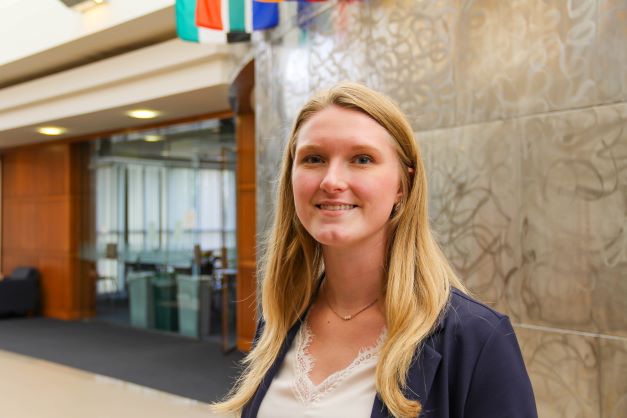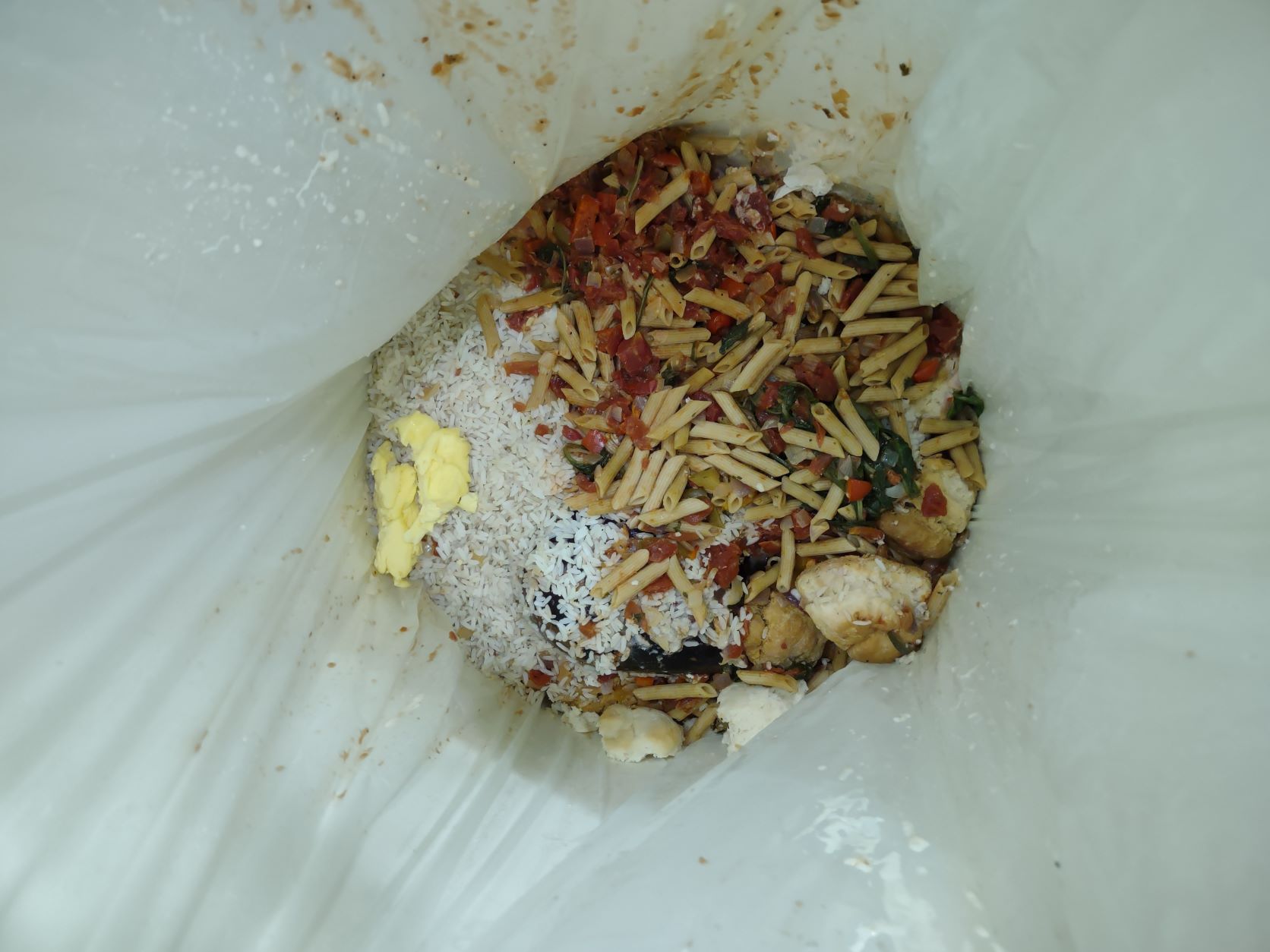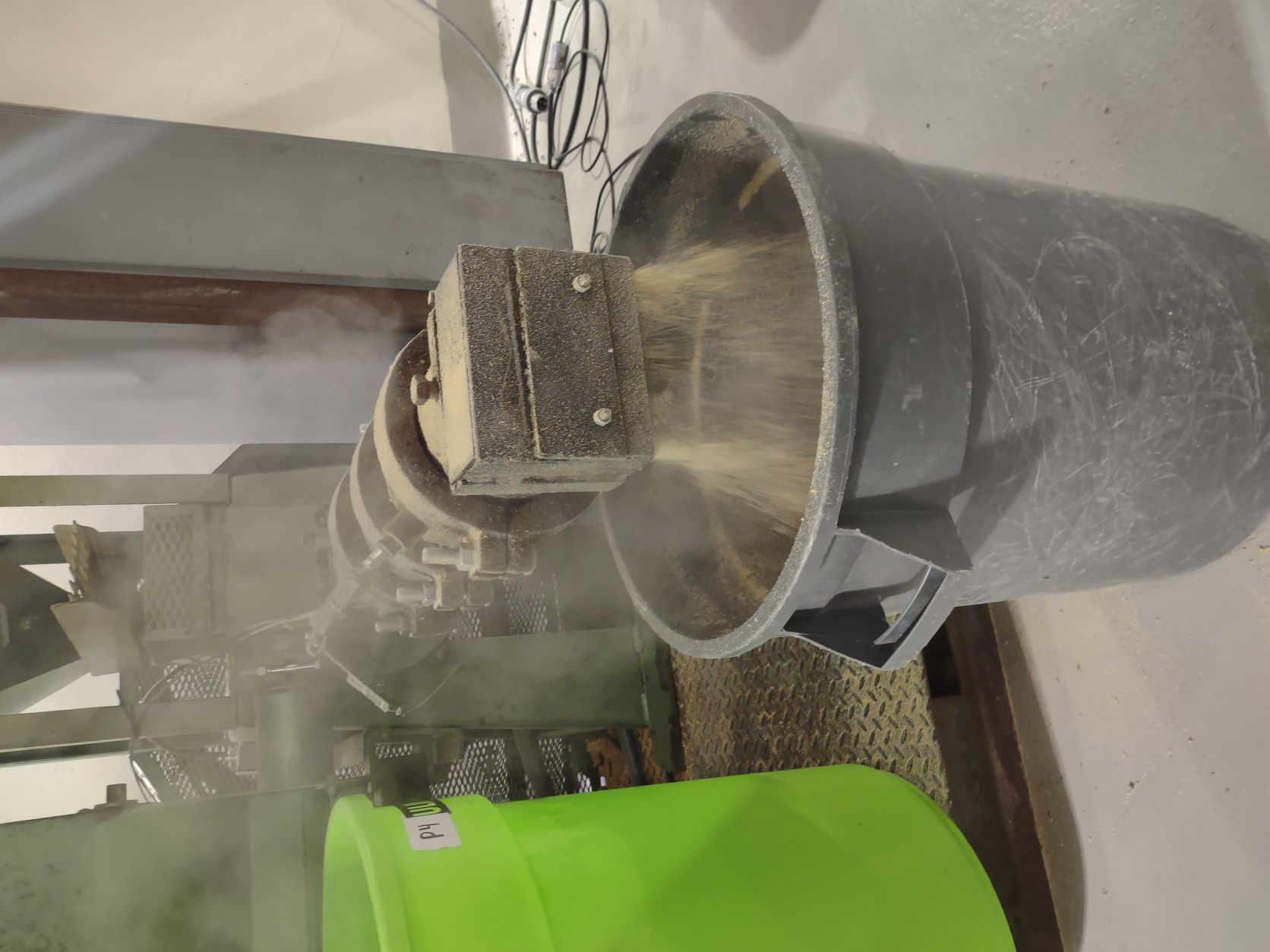Turning food waste into poultry feed
According to reports by the Global Food Security and the Food Waste Reduction Alliance, 45% of retail food waste and 97% of restaurant food waster goes to landfills.

Nelsa Beckman, who plans to graduate from K-State in May with her Master of Science in feed science and management, has been studying how to repurpose food waste into poultry feed.
Beckman is originally from Manhattan, Kansas, and while she wound up attending her hometown university, she did consider other schools. Her major was initially agribusiness, but after her freshman year, she decided “the whole numbers thing” wasn’t quite for her.
Her involvement with Future Farmers of America, or FFA, 4-H and growing up raising and showing livestock, as well as her work in the feed mill on campus, led her to feed science where she’s found a home.
While working in the feed mill Beckman has seen the many byproducts used in animal feed — such as soybean meal, grain meal, even meat byproducts — and how the feed industry tries to use as much as possible of what is already available.
“Seeing that really sparked my interest in sustainability and using food waste, and when my advisor approached me with a project that he and another faculty member were working on, it was like the dream project for me,” Beckman said.

That project, titled, “Enhancing the economic value and business viability of food waste to animal feed conversion” was funded by the Global Food Systems Seed Grant Program for the 2022 fiscal year.
Alongside her advisor, Chad Paulk, professor of grain science and industry, Beckman studied the use of food waste from campus dining halls in broiler chicken diets, and how well the chickens could both digest and grow while being fed the previously discarded food.

Beckman organized collecting the food waste from the dining halls and created a process to break it down so that it was safe biologically, didn’t have as much moisture and could be brought safely into the feed mill. She also put together digestibility and growth studies.
The results showed that the food waste was similar when compared to soybean meal, which is already a feed ingredient typically used in all poultry diets.
“That to me is really exciting because I think it shows promise and potential that we can use something that we’ve already got an abundance of,” Beckman said.
Beckman had the opportunity to present some of her research at the 2023 International Production and Processing Expo held in Atlanta from January 24-26.

After her presentation, several people talked to her about the different ways they are approaching solving problems in poultry feed and sustainability. It excites her to know there’s so many people and companies already working on these issues and applying similar research in the real world.
Upon graduating with her master’s degree from K-State in May, Beckman is applying to another school to pursue a doctorate in poultry nutrition. Her ultimate career goal is to be a service technician for a feed ingredient company and work closely with producers and feed mills to help them solve problems.